Our faculty members participate in conferences around the world, conduct groundbreaking research, and publish books and journal papers that contribute to their field and highlight their expertise. We feature those accomplishments and more in this section.
College of Natural and Behavioral Sciences
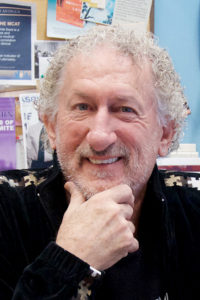
Thomas Landefeld, professor of biology and pre-health adviser, attended the National Association of Medical Minority Educators Conference in Arlington, VA, where he co-presented a talk with Western University of Health Sciences Professor Christina Goode titled “Changing the face of STEM faculty and health professionals.” Landefeld also visited Tougaloo College in Jackson, MS, where he gave two presentations: “Writing a strong personal statement,” and “Considerations regarding minority health disparities- career choices.” At Winston-Salem State University in Salem, NC, he presented the talk “The student’s role in reducing health disparities and promoting health equity” to students and faculty.”
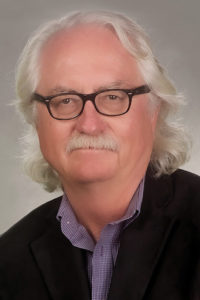
Jerry Moore, professor and chair of the Department of Anthropology, has penned the article “Ethnoarchaeology and Archaeology of Vernacular Architecture in the Department of Tumbes, Peru” in the publication Vernacular Architecture in the Pre-Columbian Americas, which was edited by Christina Halperin and Lauren Schwartz.
College of Arts and Humanities
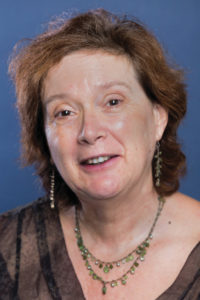
Nancy Erbe, professor of the Negotiation, Conflict Resolution and Peacebuilding, wrote “Attribution Error of War,” which was featured in the book “The SAGE Encyclopedia of War: Social Science Perspectives,” edited by Paul Joseph, professor of sociology at Tufts University. The book views war through the lens of the social sciences, looking at the causes, processes and effects of war and drawing from a vast group of fields, such as communication and mass media, economics, political science and law, psychology and sociology.
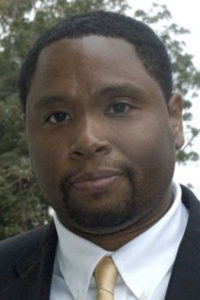 Salim Faraji, professor of Africana Studies, was a contributing author of the recently released book “Albert Cleage Jr. and the Black Madonna and Child,” (Palgrave Macmillan) edited by Jawanza Eric Clark. Faraji’s chapter is titled “Savior King: Re-reading the Gospels as Greco-Africana Literature & Re-imaging Christ as Messianic Pharaoh.” In the book, black religious scholars and pastors discuss the legacy of Albert B. Cleage Jr. and the idea of the Black Madonna and child.
Salim Faraji, professor of Africana Studies, was a contributing author of the recently released book “Albert Cleage Jr. and the Black Madonna and Child,” (Palgrave Macmillan) edited by Jawanza Eric Clark. Faraji’s chapter is titled “Savior King: Re-reading the Gospels as Greco-Africana Literature & Re-imaging Christ as Messianic Pharaoh.” In the book, black religious scholars and pastors discuss the legacy of Albert B. Cleage Jr. and the idea of the Black Madonna and child.
Books
Larry Rosen’s, professor emeritus and psychology professor, book “The Distracted Mind: Ancient Brains in a High-Tech World,” (MIT Press, Oct. 2016) written with Adam Gazzaley, professor of neurology, physiology and psychiatry at UC San Francisco, explains why human brains are not built for multitasking, and suggests better ways to live in a high-tech world without giving up our modern technology. CSUDH faculty and staff can receive a special discount.
Recent quotes and/or interviews in the media from faculty
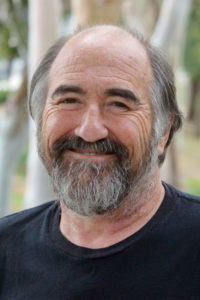 Larry Rosen, professor emeritus and psychology professor, has been quoted in several publications recently on his research on the psychology of technology:
Larry Rosen, professor emeritus and psychology professor, has been quoted in several publications recently on his research on the psychology of technology:
“We’ve fallen into this mental sinkhole where we get a communication and feel we have to respond to it. We act out of this creeping anxiety of not being current,” – “Trying To Get The Kids To Put Down Those Phones? Here’s Help” on the NPR’s webpage “Shots.”
“Three quarters of teenagers have their smartphone next to the bed, and it’s either on vibrate, or it’s on. That disrupts your sleep. About half of the young adults in our study get up at night to check their phones; that’s a serious problem. If you don’t sleep well, not only does it make you groggy, it affects your ability to remember things, it affects your ability to learn, it affects your ability to think clearly; your brain needs to time flush out the junk it accumulates during the day,” – “How Young is Too Young for a Smartphone? We Asked the Experts” on the website Digital Trends.
“My concern about this VR world would be that it’s really no different than my world. If you can put yourself in a situation where distractions are minimized, then that’s good, but the problem is all the distractions are built in,” – “I Worked in a VR Office, and It Was Actually Awesome,” on the website MOTHERBOARD.